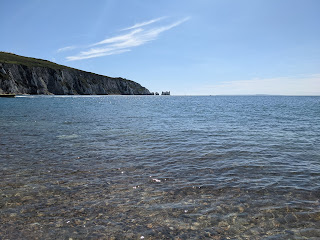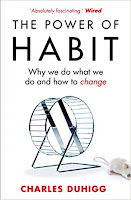Here's a brief timeline of the standout events which the author discussed in the book:
- 1600s (first half)
- English Civil War.
- Increased migration of Brits to America.
- 1600s (second half)
- Pirating the ships and islands of more successful empires like the Spanish.
- 1700s (first half)
- The rise of sugar imports into Britain.
- Growth in the number of slave exports from Africa to America on British ships.
- 1700s (second half)
- The rise of re-exporting stimulants like sugar, caffeine and tobacco to continental Europe.
- Britain emerges the victor in the Seven Years War over France.
- American War of Independence.
- Increased transportation of British convicts to Australia.
- 1800s (first half)
- Slavery is made illegal in British territory.
- The rise of Christian missionary groups and missionaries operating in British colonies.
- 1800s (second half)
- The Indian Mutiny.
- The Industrial Revolution shrinks the world with the construction of bigger, faster ships and the invention of the telegraph.
- Construction of the HMS Warrior battleship is completed.
- The first meeting of the Indian National Congress is held. (Though initially intended to defuse Indian disaffection with the British Raj, Congress would become the crucible of Indian nationalism.)
- A third of Africa is annexed to the British Empire.
- 1900s (first half)
- The Boer War is fought (against the Boer states) for control of South Africa. (Survivors were herded into concentration camps.)
- World War I
- World War II
- 1990s (second half)
- End of the Empire.
Lastly, here are some quotes from the book:
Pirates: "... when an expedition went wrong – as when Sir Humphrey Gilbert's expedition to the West Indies foundered off Ireland in 1578 – the survivors resorted to piracy to cover their expenses."
Pirates: "The Empire had begun with the stealing of gold; it progressed with the cultivation of sugar."
Sugar Rush: "The rise of the British Empire, it might be said, had less to do with the Protestant work ethic or English individualism than with the British sweet tooth."
Sugar Rush: "Taken together, the new drugs gave English society an almighty hit; the Empire, it might be said, was built on a huge sugar, caffeine and nicotine rush – a rush nearly everyone could experience."
Sugar Rush: "Indian textiles – which even a servant like [Daniel] Defoe's 'plain country Joan' could afford – meant that the tea-swilling English not only felt better; they looked better too."
Men of War: "... they [the Indians] allowed themselves to be divided – and, ultimately, ruled."
Men of War: "... no matter how devoted they [the British] might be to Indian culture, their aim was always to transfer their profits back home to Britain. The notorious 'drain' of capital from India to Britain had begun."
The Taxman: "British power in India continued to be based on the sword. War after war extended British rule even further..."
The Taxman: "They had robbed the Spaniards, copied the Dutch, beaten the French and plundered the Indians. Now they ruled supreme."
Plantation: "Here was one of the key differences between British America and Latin America. Spanish settlers tended to be solo male encomanderos... the majority of male Iberian migrants therefore took their sexual partners from the (dwindling) indigenous or the (rapidly growing) slave population. The result within a few generations was a substantial mixed-race population of mestizos and mulattos (Hispanic and African). British settlers in North America were not only much more numerous; they were encouraged to bring their wives and children with them, thus preserving their culture more or less intact. In North America, as in Northern Ireland, therefore, British colonisation was a family affair. As a consequence, New England really was a new England, far more than New Spain would ever be a new Spain."
Plantation: "There were probably around 2 million indigenous people in the territory of the modern United States in 1500. By 1700 the number was 750,000. By 1820 there were just 325,000."
Black and White: "We tend to think of the British Empire as a phenomenon of white migration, yet between 1662 and 1807 nearly three and a half million Africans came to the New World as slaves transported in British ships. That was over three times the number of white migrants in the same period."
Black and White: "By 1770... Britain's Atlantic empire seemed to have found a natural equilibrium. The triangular trade between Britain, West Africa and the Caribbean kept the plantations supplied with labour. The mainland American colonies kept them supplied with victuals. Sugar and tobacco streamed back to Britain, a substantial proportion for re-export to the Continent. And the profits from these New World commodities oiled the wheels of the Empire's Asian commerce."
Civil War: "... it is the great paradox of the American Revolution... that the ones who revolted against British rule were the best-off of all Britain's colonial subjects."
Civil War: "It was the constitutional principle – the right of the British parliament to levy taxes on the American colonists without their consent – that was the true bone of contention."
Civil War: "... they [the American colonists] wanted their assemblies to be put on a par with the Westminster Parliament..."
Civil War: "It has sometimes been argued that in gaining Canada in the Seven Years War, Britain had undermined her position in America. Without the French threat, why should the thirteen colonies stay loyal?"
Civil War: "... the loss of America had the unforeseen effect of securing Canada for the Empire, thanks to the flood of English-speaking Loyalists who, together with new British settlers, would eventually reduce the French Quebecois to a beleaguered minority."
Civil War: "The irony is that having won their independence in the name of liberty, the American colonists went on to perpetuate slavery in the southern states... By contrast, within a few decades of having lost the American colonies, the British abolished first the slave trade and then slavery itself throughout their Empire."
Mars: "The great paradox of Australian history is that what started out as a colony populated by people whom Britain had thrown out proved to be so loyal to the British Empire for so long. America had begun as a combination of tobacco plantation and Puritan utopia, a creation of economic and religious liberty, and ended up as a rebel republic. Australia started out as a jail, the very negation of liberty. Yet the more reliable colonists turned out to be not the Pilgrims but the prisoners."
Mars: "... transportation there [New South Wales in Australia] was no longer a deterrent to crime, but rather a free passage to a new life, with the prospect of a golden handshake in the form of a land grant at the end of one's sentence."
Mars: "The colonists brought with them contamination in the form of infectious diseases to which the Aborigines had no resistance, and cultivation which implied the exclusion of the nomadic tribes from their ancestral hunting grounds."
Mars: "The case of the Aborigines was a striking example of the way attitudes diverged over distance. The British in London regarded the problem quite differently from the British in Sydney. Here was the very essence of the imperial dilemma. How could an empire that claimed to be founded on liberty justify overruling the wishes of colonists when they clashed with those of a very distant legislature?"
From Clapham to Freetown: "This was the birth of a new kind of politics, the politics of the pressure group. Thanks to the work of zealous activists armed only with pens, paper and moral indignation, Britain had turned against slavery."
From Clapham to Freetown: "Here was a measure of the strength of the campaign against the slave trade: that it could mobilise not only legislators to ban the trade, but also the Royal Navy to enforce the ban."
From Clapham to Freetown: "For two hundred years the Empire had engaged in trade, warfare and colonisation. It had exported British goods, capital and people. Now, however, it aspired to export British culture."
From Clapham to Freetown: "There could not be a greater contrast between the missionaries' motives and those of previous generations of empire-builders, the swashbucklers, the slavers and the settlers."
The Clash of Civilisations: "... by the 1830s and 1840s 40 percent of the total value of Indian exports took the form of opium..."
The Clash of Civilisations: "The rock on which British rule was founded was the Indian Army."
The Clash of Civilisations: "When Delhi fell to 'British' forces, those forces were mostly Indian."
The Clash of Civilisations: "In the time between [David] Livingstone's death in 1873 and [Henry Morton] Stanley's death in 1904 around a third of Africa would be annexed to the British Empire; virtually all the rest would be taken over by a handful of other European powers. And it is only against this background of political domination that the conversion of sub-Saharan Africa to Christianity can be understood."
The Annihilation of Distance: "It is indeed one of the richer ironies of the Victorian value-system that the same navy that was deployed to abolish slave trade was also active in expanding the narcotics trade."
The Annihilation of Distance: "From 1879, the date of the second British attempt to invade and control Afghanistan, until the third attempt in 1919, Britain and Russia conducted the world's first Cold War along the North-West Frontier. But the spies in this Cold War were surveyors, for whoever mapped the frontier first stood a good chance of controlling it."
Cape to Cairo: "Within twenty short years after 1880... ten thousand African tribal kingdoms were transformed into just forty states, of which thirty-six were under direct European control. Never in human history had there been such drastic redrawing of the map of a continent."
Cape to Cairo: "Across Africa the story repeated itself: chiefs hoodwinked, tribes dispossessed, inheritances signed away with a thumbprint or a shaky cross and any resistance mown down by the Maxim gun. One by one the nations of Africa were subjugated... By the beginning of the new century [i.e. the 20th century], the carve-up was complete."
Greater Britain; "Around two and a half million British nationals emigrated to the Empire between 1900 and 1914, three-quarters of them to Canada, Australia and New Zealand. In most cases, emigration substantially increased their incomes and reduced their tax burdens."
Weltkrieg: "In the autumn of 1914, around a third of British forces in France were from India; by the end of the war more than a million Indians had served overseas, almost as many as came from the four white Dominions put together."
Weltkrieg: "... the Indians were not reluctant conscripts [to fight for the British in the first world war]; they were in fact all volunteers, and enthusiastic volunteers at that."
The Transfer of Power: "Once the British had made up their minds to get out [from their various colonies], they aimed to catch the first boat home, regardless of the consequences in their former colonies."
The Transfer of Power: "In the end, the British sacrificed her Empire to stop the Germans, Japanese and Italians from keeping theirs. Did not that sacrifice alone expunge all the Empire's other sins?"












